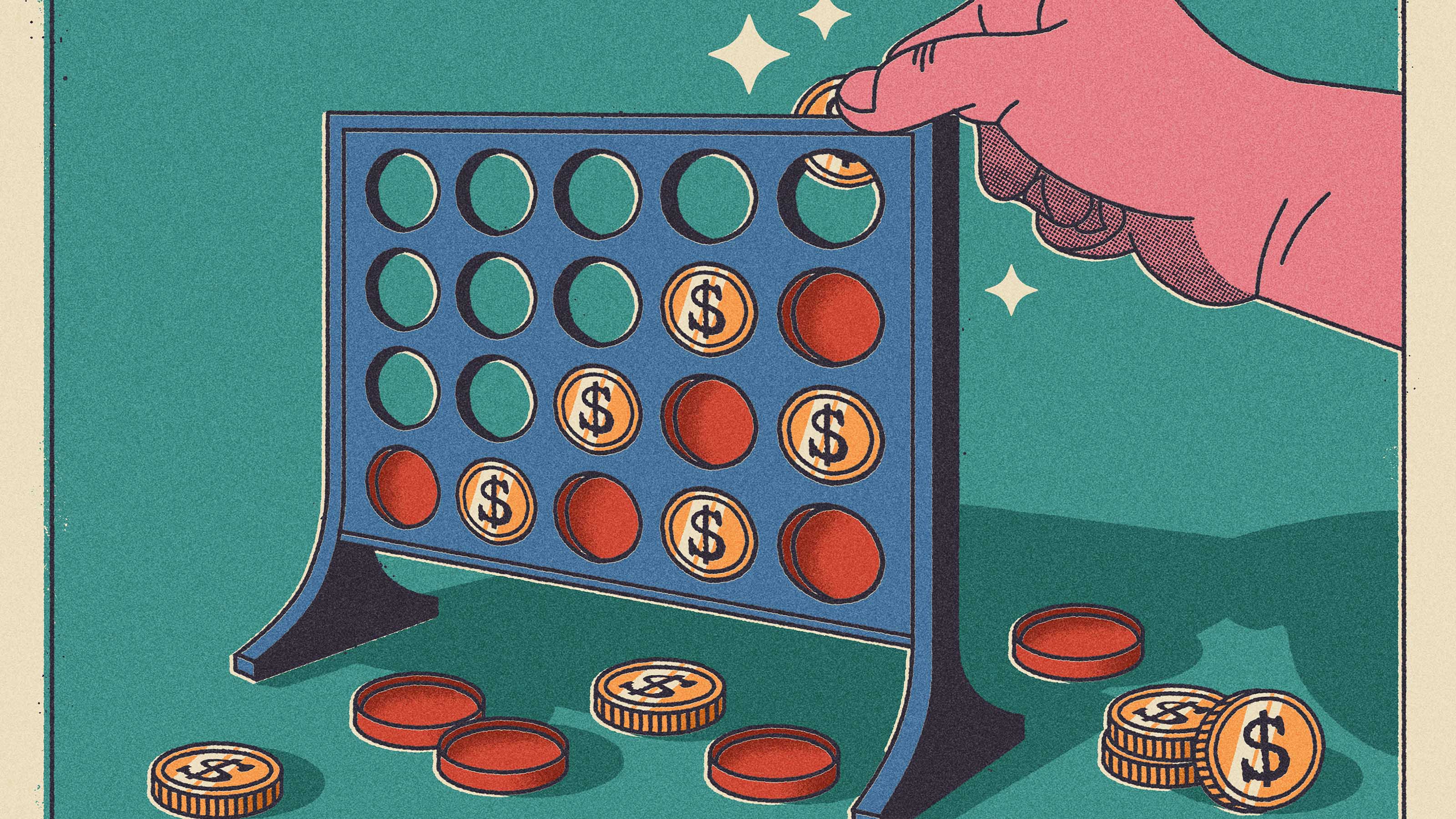Beware Investment-Newsletter Hype
Unlike mutual funds, newsletters have a lot of freedom to highlight figures that cast them in the best possible light.


Profit and prosper with the best of Kiplinger's advice on investing, taxes, retirement, personal finance and much more. Delivered daily. Enter your email in the box and click Sign Me Up.
You are now subscribed
Your newsletter sign-up was successful
Want to add more newsletters?

Delivered daily
Kiplinger Today
Profit and prosper with the best of Kiplinger's advice on investing, taxes, retirement, personal finance and much more delivered daily. Smart money moves start here.

Sent five days a week
Kiplinger A Step Ahead
Get practical help to make better financial decisions in your everyday life, from spending to savings on top deals.

Delivered daily
Kiplinger Closing Bell
Get today's biggest financial and investing headlines delivered to your inbox every day the U.S. stock market is open.

Sent twice a week
Kiplinger Adviser Intel
Financial pros across the country share best practices and fresh tactics to preserve and grow your wealth.

Delivered weekly
Kiplinger Tax Tips
Trim your federal and state tax bills with practical tax-planning and tax-cutting strategies.

Sent twice a week
Kiplinger Retirement Tips
Your twice-a-week guide to planning and enjoying a financially secure and richly rewarding retirement

Sent bimonthly.
Kiplinger Adviser Angle
Insights for advisers, wealth managers and other financial professionals.

Sent twice a week
Kiplinger Investing Weekly
Your twice-a-week roundup of promising stocks, funds, companies and industries you should consider, ones you should avoid, and why.

Sent weekly for six weeks
Kiplinger Invest for Retirement
Your step-by-step six-part series on how to invest for retirement, from devising a successful strategy to exactly which investments to choose.
I don’t know about you, but my e-mail in-box is flooded with pitches for investment newsletters. The solicitations typically brag about the letters’ incredible results. “I don’t want to say ‘I told you so,’ but [my picks generated] an impressive 63.8%,” says a pitch I received recently from one letter. “That’s the average gain investors who first accepted my offer to join are bragging about.” Another letter touted “winners” that would have generated $485,000 in gains for a hypothetical investor. “Becoming a millionaire is absolutely possible for you, but you must take this critical first step [to subscribe] now!” it said.
SEE ALSO:
Signs You Might Need a Financial Planner (And How to Find the Right One)
p>
From just $107.88 $24.99 for Kiplinger Personal Finance
Become a smarter, better informed investor. Subscribe from just $107.88 $24.99, plus get up to 4 Special Issues

Sign up for Kiplinger’s Free Newsletters
Profit and prosper with the best of expert advice on investing, taxes, retirement, personal finance and more - straight to your e-mail.
Profit and prosper with the best of expert advice - straight to your e-mail.
After being bombarded with dozens of similar promotions, even a self-confident investor might begin to feel inadequate. So you may be tempted to pay a few hundred bucks to learn a letter’s secret sauce, abandoning the comparatively bland investment strategy you’ve been using, no matter how rational it once appeared to be.
Grain of salt. But before you act, take a moment to examine the promotion’s claims. Unlike mutual funds, whose advertising is heavily regulated, newsletters have a lot of freedom to highlight figures that cast them in the best possible light. One way they do that is to make it difficult, if not impossible, for you to verify the figures. Others may provide accurate data but no benchmarks. That allows them to mislead through omission rather than prevarication.
Would you be as impressed with that 63.8% return, for instance, if you knew that a broad market index earned 62% over the same 37 months? The outperformance amounts to just 0.4 percentage point per year. And with such a short record, it’s impossible to know whether that letter writer is good, lucky or simply knows how to cherry-pick the time frame to look smart.
Likewise, the alleged millionaire maker mentioned above failed to note that the trades that generated those $485,000 gains would have required an initial stake of $1.8 million. Worse, although the pitch noted that 170 of the letter writer’s trades were “winners,” it failed to mention the total number of trades she recommended.
To put this in perspective, consider what I might say in materials promoting my Practical Investing portfolio. They would shout: Kathy’s pick of Spirit Airlines (symbol SAVE) would have earned you a 368% return; her recommendation of Apple (AAPL) would have made you 137%; and her choice of Seagate Technology (STX) would have won you a 164% gain. I would proclaim that if you had invested $600,000 in each of those picks (to match the millionaire maker’s $1.8 million investment), you’d have $5.8 million today—a profit of more than 200%!
I might also mention that at one cleverly chosen point in time, the performance of my portfolio was solidly ahead of its benchmark. But I’d neglect to say anything about my losing picks or to fess up that my portfolio is trailing its benchmark today.
I mention these things not to tar all investment newsletters, much less my own stock-picking skills. I find many letters to be informative and enjoyable to read. And I know that professional investors trail their benchmarks at times. But bull markets tend to breed big winners who will happily sell you their swill. As the old Wall Street adage says, however, don’t confuse a bull market with genius. If you’re not skeptical, claims of astounding gains could make you abandon a reasonable strategy for the mindless buy-at-any-price approach that often signifies a stock-market top.
It is especially crucial in the late stages of a bull market to understand what you own. When this bull market ends, as it will one day, the confidence you have in your stock selection and strategy can help you survive the next bear market without panicking and selling at the worst possible time.
Profit and prosper with the best of Kiplinger's advice on investing, taxes, retirement, personal finance and much more. Delivered daily. Enter your email in the box and click Sign Me Up.

-
 5 Vince Lombardi Quotes Retirees Should Live By
5 Vince Lombardi Quotes Retirees Should Live ByThe iconic football coach's philosophy can help retirees win at the game of life.
-
 The $200,000 Olympic 'Pension' is a Retirement Game-Changer for Team USA
The $200,000 Olympic 'Pension' is a Retirement Game-Changer for Team USAThe donation by financier Ross Stevens is meant to be a "retirement program" for Team USA Olympic and Paralympic athletes.
-
 10 Cheapest Places to Live in Colorado
10 Cheapest Places to Live in ColoradoProperty Tax Looking for a cozy cabin near the slopes? These Colorado counties combine reasonable house prices with the state's lowest property tax bills.
-
 The Most Tax-Friendly States for Investing in 2025 (Hint: There Are Two)
The Most Tax-Friendly States for Investing in 2025 (Hint: There Are Two)State Taxes Living in one of these places could lower your 2025 investment taxes — especially if you invest in real estate.
-
 The Final Countdown for Retirees with Investment Income
The Final Countdown for Retirees with Investment IncomeRetirement Tax Don’t assume Social Security withholding is enough. Some retirement income may require a quarterly estimated tax payment by the September 15 deadline.
-
 How to Beef Up Your Portfolio Against Inflation
How to Beef Up Your Portfolio Against Inflationinvesting These sectors are better positioned to benefit from rising prices.
-
 Taxable or Tax-Deferred Account: How to Pick
Taxable or Tax-Deferred Account: How to PickInvesting for Income Use our guide to decide which assets belong in a taxable account and which go into a tax-advantaged account.
-
 Smart Investing in a Bear Market
Smart Investing in a Bear Marketinvesting Here's how to make the most of today’s dicey market.
-
 How to Open a Stock Market Account
How to Open a Stock Market Accountinvesting Investing can be fun, but you need a brokerage account to do it. Fortunately, it’s easy to get started.
-
 The Right Dividend Stock Fund for You
The Right Dividend Stock Fund for YouBecoming an Investor Dividend stock strategies come in many different flavors. Here's what to look for.
-
 Alternative Investments for the Rest of Us
Alternative Investments for the Rest of UsFinancial Planning These portfolio diversifiers aren't just for the wealthy.